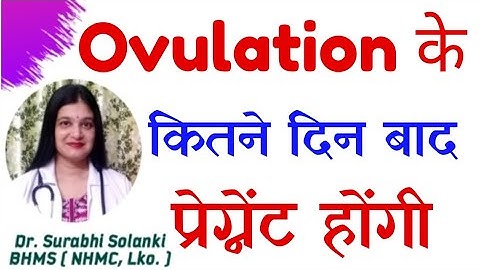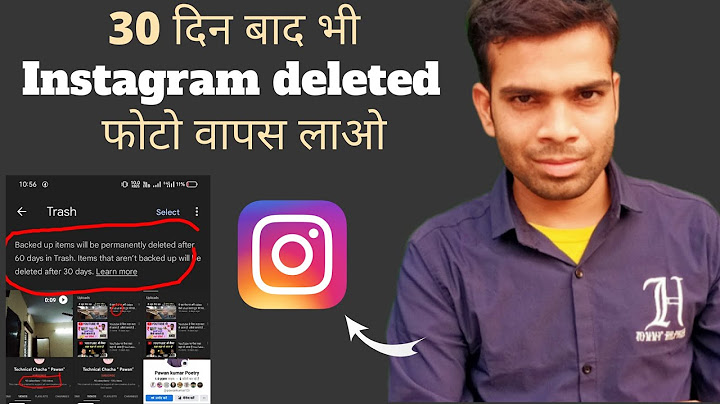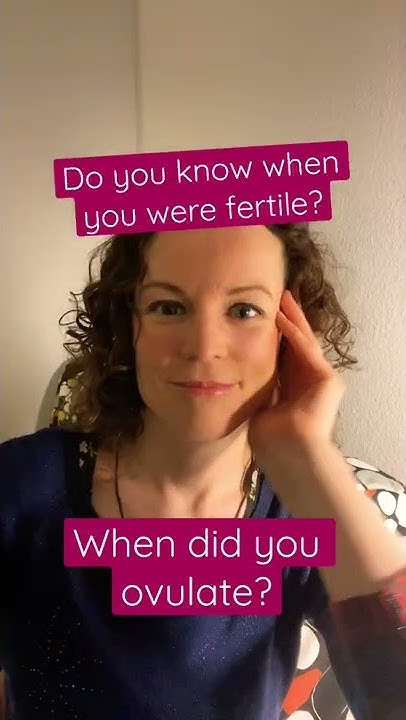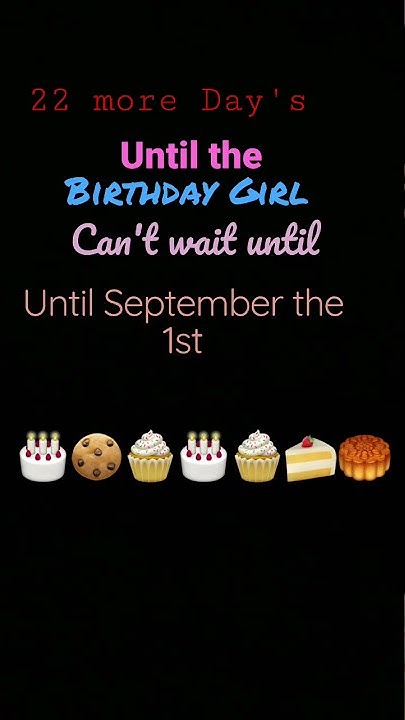Timing is everythingIf you’re trying to fall pregnant, the timing of when you and your partner have sex is critical. Our new online calculator will help you understand your Fertile Window - so you know the best time to have sex to give you the highest chance of conceiving. Show When am I most fertile?The most fertile time in your cycle are the days leading up to ovulation, before the egg is released from the ovary. After ovulation the egg survives for just 24 hours, while sperm retain fertilising capability for two to three days in the fallopian tubes. For this reason, we recommend that couples have sexual intercourse every two days throughout the females Fertile Window. This means that sperm are ready and waiting for the egg when the female ovulates. If you wait until after the female has ovulated before you have sex, you will most likely have missed the opportunity for conception that month. When does conception take place?Conception starts at the moment of fertilisation, when the sperm penetrates the outer shell of the egg, and an embryo is formed. Over the next four to six days the embryo moves down the fallopian tube to the uterus, where it implants in the uterus lining and hopefully continues to grow. To check if you are pregnant, you should wait two weeks after ovulation before undertaking a pregnancy test. Calculate Your Fertile WindowTo calculate your Fertile Window, you need to determine what day you ovulate.To do this, you need to know the length of your menstrual cycle (which tends to vary from 23 to 35 days). To calculate this – you should note how many days have passed from the first day of bleeding in your last period, to the first day of bleeding in your next.From this figure, subtract 14 days from the end of your current cycle to determine the day you ovulate.If you have irregular menstrual cycles, or your cycle length varies from month to month, it will be difficult to calculate your ovulation date. Ovulation urine tests may be useful, and you should consider seeking further advice from your GP or a Fertility Specialist. How long should I try for, before seeking specialist advice?Conception is a complicated sequence of events because all of the following need to be in place for it to occur:
The number one factor affecting a couple’s chances of conceiving is the woman’s age. The number of healthy eggs a woman’s ovaries contain will dramatically decline with age; and especially for women over 35. Most people start to consider seeking professional advice after six months of trying to conceive naturally without success. This is even more important if you’re over 35. Want to know more?If you’re keen to know more about the menstrual cycle, read about female reproduction…. If you’d like to consult with a Fertility Specialist about irregular periods and ovulation, or difficulties conceiving naturally, then please contact us. If you’re like many women, you probably have a love-hate relationship with your period. Trying to figure out when it will come, how long it will last, and if you can get pregnant at this time or that during your cycle can feel like a full-time job — one that requires a degree in biology, no less! But all you really want is to be in charge of when (or if) you become a parent. If you ovulate regularly (not every woman does), you have a monthly “fertile window” when you’re most able to get pregnant. This fertile window varies from woman to woman and sometimes also — sigh — from month to month. This can make it hard to know when you’re at your most fertile, which usually — but not always — occurs mid-cycle. This is around day 14, if you have a 28-day cycle. Some women naturally have a shorter cycle of around 21 days. If this describes you, it’s actually possible — though not likely — that you can conceive during or right after your period. If you sporadically ovulate early or late, it’s also possible to get pregnant by having sex right before, during, or after menstruation — but again, it’s not probable. The moral of the story? Always use birth control if you’re trying to avoid pregnancy, even if you have your period. And, if you’re trying to conceive, have sex often, but know when you’re at your most fertile. Knowledge is power! Here’s how to figure it all out. Timing in life is pretty much everything, especially when it comes to getting (or not getting!) pregnant. You have a fertile window of around six days each month when you’re most likely to conceive. This includes:
Once it’s released, an egg can be fertilized for up to 24 hours. Sounds simple enough, right? But in case you didn’t get the memo during sex ed — and lots of us didn’t, because we were too distracted by what our adolescent selves considered the “good stuff” — ovulation can be tricky. While you’re menstruating, your body is shedding your uterine lining, because a pregnancy didn’t take place last cycle. The hormones needed to sustain pregnancy, like progesterone, are very low at this time. Even so, your body is already gearing up for your next fertile window. You may have a menstrual cycle that runs like a well-oiled machine, and then suddenly one month, ovulate a few days earlier or later than usual. You may even skip a month. There are tons of reasons for this. For one, until we figure out how to stop time, your age is changing. Your weight may change, too, causing hormonal fluctuations to occur. Not getting enough zzz’s, or even high levels of stress, may also affect ovulation. Some women have medical conditions, like PCOS, which make ovulation super hard to predict. Many women typically ovulate around 12 to 14 days after the first day of their last period, but some have a naturally short cycle. They may ovulate as soon as six days or so after the first day of their last period. And then, of course, there’s sperm. It turns out those little swimmers can be pretty tricky, too. After ejaculation, sperm may survive inside your body for up to five whole days, and can fertilize an egg at any time during that window. So even if you weren’t that close to ovulating when you had sexy time, pregnancy can still happen. As any woman with a calendar and a bunch of best friends will tell you, the amount of days each woman spends menstruating can vary a lot. Your menstrual flow may start to diminish and lighten in color, or turn brown towards the end of your cycle. It feels and looks like you’re still menstruating, but your body is already gearing up for your next fertile time. If you have sex towards the end of your period, you may actually be getting close to your fertile window, especially if you have a short cycle. Let’s take a look at the math. Say you ovulate early, about six days after your period starts. You have sex on the third day of your period. The sperm have no egg to fertilize, but they’re also in no hurry to die — so they hang out, doin’ what sperm do. A few days later, while they’re still swimming around, you ovulate and they’re drawn to that egg like a fish to water. One gets through, and there you have it — fertilization has occurred as a result of period sex. Many women look forward to having contraception-free sex right after their period ends. It’s true that it’s unlikely you’ll get pregnant a day or two after menstruation stops, but given the lifespan of sperm and the challenges around predicting ovulation exactly — it’s not at all impossible. This is especially true if you ovulate earlier than you usually do, or if you have a naturally short menstrual cycle of around 21 days. Keeping in mind that your body is constantly changing, it’s pretty much impossible to ever be 100 percent safe when it comes to avoiding pregnancy, if you’re having unprotected sex. Your menstrual cycle starts on the first day of your period, and ends on the last day before your next period starts. If you have a clockwork menstrual cycle of 28 days, you are at your “safest” — but not totally in the clear —around one week or so after you ovulate. Keep in mind that sperm can continue to live in your body, so if you’ve had unprotected sex, this sort-of-safe window may change. If your periods are even the slightest bit irregular, so is your fertile window. And keep in mind that your cycle can change at any time, without giving you a heads up in advance. If you’re trying to get pregnant, pinpointing ovulation is a vital first step. If you’ve been dutifully baby dancing mid-cycle and haven’t yet gotten pregnant, you may even wonder if you have more irregular ovulation and would benefit from sex during or right after your period. There are several ways you can try to figure out your ovulation patterns. They include: At-home ovulation predictor kits. These tests work by detecting LH (luteinizing hormone), which surges 1–2 days before ovulation takes place. So these kits can tell you when you’re going to ovulate, but they can’t tell you when ovulation has taken place. Progesterone test kits. Some women who have irregular periods, such as those with PCOS, find that using a kit that detects progesterone — the hormone released right after ovulation — is helpful to use in addition to a standard ovulation kit. Determining whether or not your body produced progesterone will help you to know if you ovulated or not. Fertility apps. Ovulation-tracking apps compile a monthly record of multiple factors, such as basal body temperature and cervical mucus. They can help women with regular periods determine when they’re ovulating. We wish we could put this in neon flashing lights, though: These apps can help you get pregnant, but they’re not birth control and shouldn’t be used to prevent pregnancy. Tracking basal body temperature (BBT). Using this method as “birth control” has resulted in the birth of many babies. But, when you’re trying to get pregnant, it may be effective in cluing you in to approximately when you ovulate each month. To track your BBT, you’ll need a BBT thermometer, designed for this purpose. Take your temperature each morning when you wake up, before you move even an inch. Chart your temperature the same time of day, every day. When you chart a temperature rise of around 0.4°F for three days straight, you probably ovulated. If you had unprotected sex during or right after your period and wonder if you’re pregnant, the short answer is — you could be. Definitely talk to your doctor or take a home pregnancy test. You can get pregnant at any time during your cycle. Ovulation timing varies, and sperm are stubborn when it comes to their will to live. For some women that’s good news and for others, not so much. The answer? Take control. Knowing your body, tracking ovulation, and, if necessary, taking precautions is the best way to get the outcome you want best. How fertile are you just after your period?The fertile days may last for up to 3-5 days after the end of your period. The chances of getting pregnant just after the period depend on how short the menstrual cycle is and how long the period lasts. If periods are long, women may only have a few days left after the period ends before fertile days begin.
Can I get pregnant just 5 days after my period?A person can get pregnant right after their period. For this to occur, they have to have sex near the time of ovulation, which occurs when the ovaries release an egg. The closer to their period a person ovulates, the higher their chances of becoming pregnant right after a period.
|

Related Posts
Advertising
LATEST NEWS
Advertising
Populer
Advertising
About

Copyright © 2024 nguoilontuoi Inc.


















